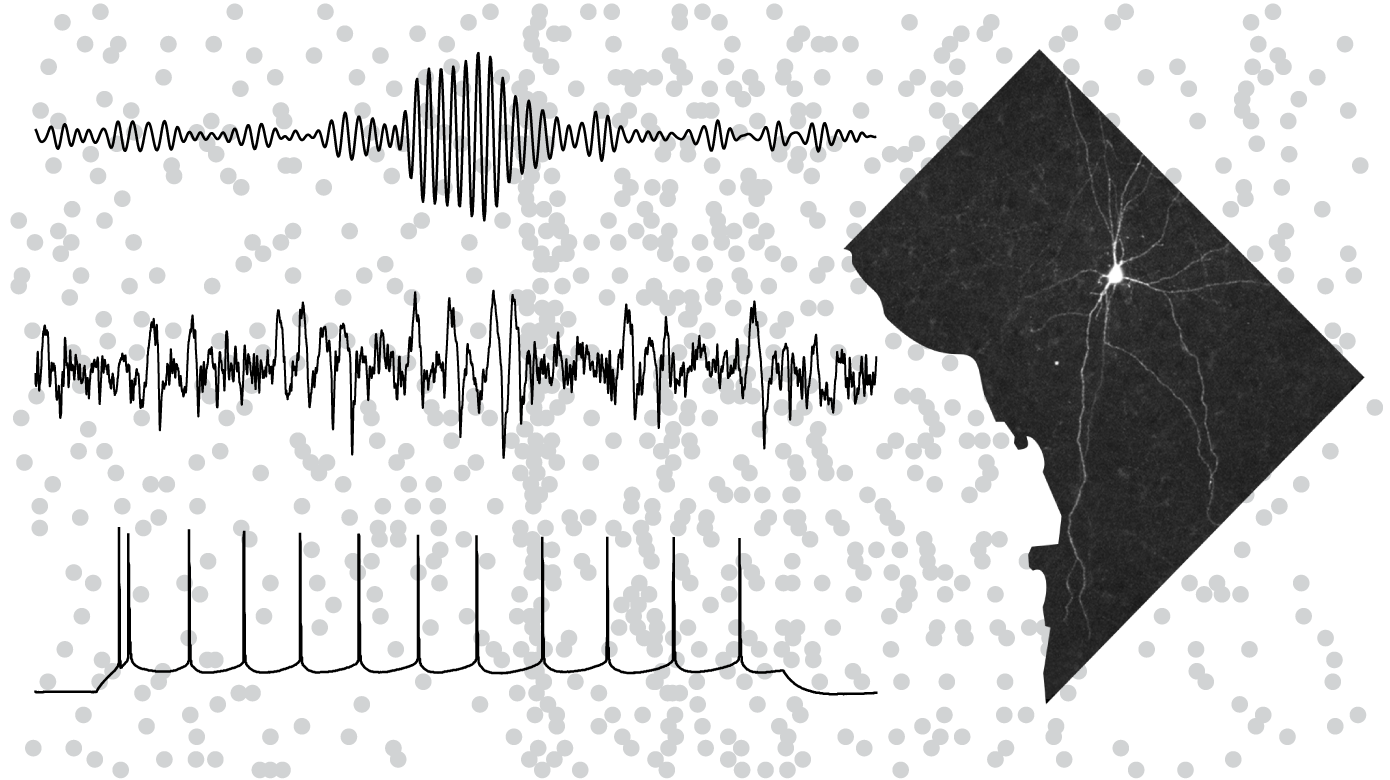Our Research

Neural Circuits and Behavior in Angelman Syndrome
Angelman syndrome is a rare (~1/15,000) neurodevelopmental disorder caused by genetic mutations affecting a single gene, UBE3A. Individuals with Angelman syndrome face challenges with communication, epilepsy, motor function and impaired sleep. We seek to understand how loss of UBE3A protein disrupts neural circuits and ultimately affects behavior in rodent models of Angelman syndrome.
Sensory Processing and Plasticity in Prefrontal Cortex
The prefrontal cortex receives highly processed information and regulates complex processes such as cognitive control and executive function. But some prefrontal areas also receive direct inputs from primary sensory cortices. We study how sensory information is encoded in these higher-order circuits, and use the sensory environment to ask how prefrontal circuits are modified by patterned experience.
Quantitative EEG Biomarkers for Neurodevelopmental Disorders
Electroencephalography (EEG) provides a safe, non-invasive way to measure rhythmic brain activity. We quantify human EEGs and conduct similar experiments in rodent models. Our goal is to develop reliable, quantitative biomarkers for neurodevelopmental disorders that may be deployed in clinical trials.
For more information on our research, please visit our website.
